
|
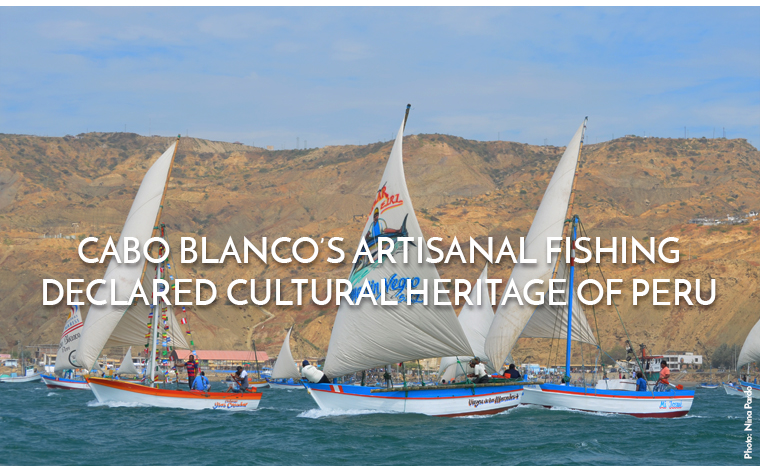
|
|
The Ministry of Culture in Peru officially declared Cabo Blanco and El Ñuro’s artisanal fishing as National Cultural Heritage. “It is the most important acknowledgement ever given to this millenary tradition, which nowadays plays a key role for the conservation of the Tropical Pacific Sea and the sustainable use of fishery resources,” says Inkaterra founder and chairman José Koechlin.
Announced at El Peruano official journal through resolution Nº 117-2018-VMPCIC-MC on August 4 (65th anniversary of the all-tackle world record, a 1560lb black marlin landed by Alfred Glassell), this declaration was prompted by NGO Inkaterra Asociación and backed by the Cabo Blanco Artisanal Fishermen Guild.
Inkaterra Asociación works with coastal communities to transform Cabo Blanco into a new ecotourism destination and a global model of sustainability. In 2012, the organization presented to the Ministry of Environment a Technical Proposal for the creation of Peru’s first marine reserve – first step for the declaration of a natural protected area, supported by the National Geographic Society, the International Game Fish Association, University of Miami and University of Alicante, among other institutions.
Since then, Inkaterra Asociación holds practical workshops on sustainable fishing techniques onboard the Analúa school-boat. All artisanal fishermen have been certified, while an ozone ice plant was established to meet high quality standards. Infrastructure initiatives include the improvement of the local fishing dock, the building of new roads, and the recovery of running water service.
|
|
More Info
|
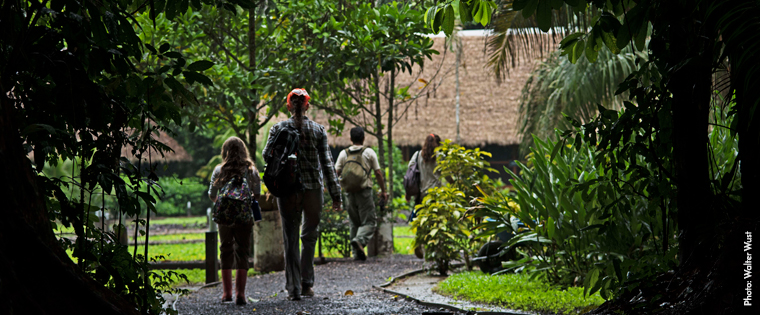 |
|
FORBES HIGHLIGHTS INKATERRA’S APPROACH ON ECOTOURISM
Leadership strategy contributor Andrew Cave looks into the ecotourism boom in Peru for the latest edition of Forbes Magazine, where he talks about Inkaterra’s history and ethos. “We never had any idea of how big ecotourism could become. The world has changed so much in the past 40 years that it would have been impossible to imagine the revolution that has happened,” Inkaterra founder and CEO José Koechlin says.
“Inkaterra prefers to use other metrics to chart its success – species spotted, nurtured and preserved for mankind,” writes Cave. Regarding this aspect, José Koechlin explains Inkaterra’s business model. “Everything is based on inventories… Most hotels have them for beds, chairs and the tubes of shampoo in the shower. Ours are for flora, fauna and wildlife. The first thing we do is learn about where the hotel is, undertaking environmental and cultural assessments so that we know what to compare ourselves against in the future and measure how our presence has improved the area.”
|
|
More Info
|
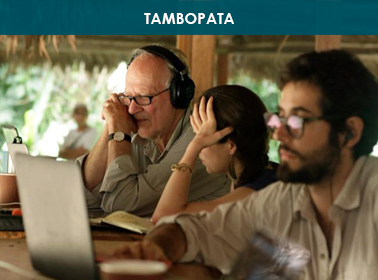
|
|
LIMA FILM FESTIVAL PREMIERES SELECTED SHORTS PRODUCED AT
‘FILMING IN PERU WITH WERNER HERZOG’
A selection of fifteen short features curated by legendary filmmaker Werner Herzog premiered on August 4 during the Lima Film Festival. The shorts were produced during the practical workshop held last May at Inkaterra Guides Field Station, attended by 48 young filmmakers from 28 countries – including China, Jordan, Croatia, Iran and Armenia. The shorts offered a portrait of Madre de Dios through diverse perspectives and cultural backgrounds, dealing with subjects such as the encounter of Amazonian nature and cultural traditions with the growing modernity. Sponsored by Inkaterra, the 22 Lima Film Festival goes from August 3-11 and will screen over three hundred features.
|
|
More Info
|
|
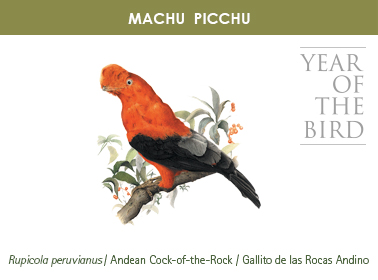
|
|
BIRD OF THE MONTH:
ANDEAN COCK-OF-THE-ROCK
Member of the Cotingidae family of regular size and appealing plumage, the Andean Cock-of-the-Rock (Rupicola peruviana) is about 12 inches long. Considered Peru’s national bird where it is also known as Tunki, the cock-the-rock’s habitat is found in the Eastern slope of the Andes mountain range, in humid montane forests such as the environs of Inkaterra Machu Picchu Pueblo Hotel. Males are defined by vividly red feathers and a prominent crest that covers the beak, while the female have darker feathers for camouflaging in the forest and have a smaller crest. During mating season males gather in leks to dance and sing, competing against other rivals.
|
|
More Info
|
|
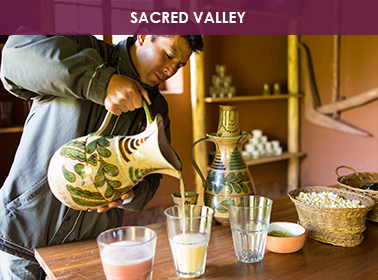
|
|
INKATERRA HACIENDA URUBAMBA’S CHICHERÍA
AMONG BEST HOTEL BREWERIES
From Denver to Tokyo, Forbes luxury travel contributor Ann Abel has travelled the world in search of the hotels with the finest in-house breweries, with Inkaterra Hacienda Urubamba among the eight selected. “In Peru, beer is brewed with local ingredients like quinoa, corn and potatoes (and popularly called chicha). At Peruvian eco-luxury pioneer Inkaterra’s lodge in the Sacred Valley, the on-site organic farm harvests those ingredients to make chicha de jora, a beer made from fermented Urubamba corn… Inkaterra also offers a complimentary chicha de jora making activity in which guests learn to make the drink and then, after it ferments, taste the fruits of their labor.
|
|
More Info
|
|
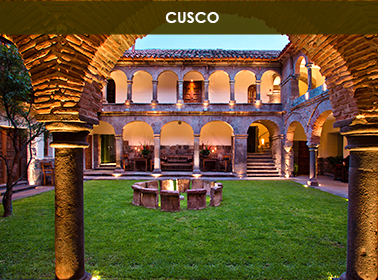
|
|
WORLD’S BEST AWARDS:
CUSCO AND INKATERRA LA CASONA
NAMED BEST CITY AND HOTEL IN SOUTH AMERICA
Travel + Leisure announced the results of the 2018 World’s Best Awards survey, where both Cusco and Inkaterra La Casona are named favorite urban destination and best city hotel in Central and South America.
The UNESCO World Heritage site is described as “an appealing city with a rich history and beautiful architecture that’s well worth visiting in its own right,” while it also points out excellence of its cuisine. Also listed 4th Best Hotel in the World, Inkaterra La Casona is highlighted for its crisp yet cozy suites that “nod to both Incan and colonial influences with antiques, handwoven blankets, and traditional thickly plastered beams crossing the high ceilings.”
|
|
More Info
|
|

|
 |
|
|